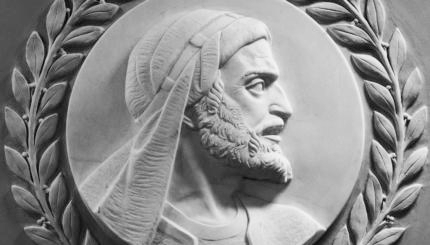And Moses read the Book of the Covenant to the people and they said “All that God has commanded we will heed and do! (Exodus 24:7)
Jewish tradition takes pride in these words, we will do and heed-na’aseh v’nishmah and one Talmudic passage even have God wondering who revealed this great secret, these words to the Jewish People. The context of course is Sinai and these words are seen as the great acceptance of Torah. The technical term for these words is hysteron proteron, “latter before” where the first term actually occurs after the second term, for example, put on your shoes and socks, but is placed first to emphasize its importance. Israel commits herself at Sinai to the totality of practice, even without necessarily knowing the extent of the laws.
Rabbi Sholom Noach Berezovsky, author of the Netivot Shalom, offers an additional reading of these words. He sees na’aseh as a commitment to do God’s will, even in the absence of specific details or legal injuctions. While fully faithful to traditional Jewish practice as legally binding, Berezovsky still understands that even in the most strict attention to observance, one must ask am I doing God’s will. While one could use this idea in an antinomian direction, for Berezovsky the question might be as I observe a particular practice, am I doing it in a way pleasing to God and one that really reflects the will of the Divine?
One of the best examples where this insight can be seen is in the case of Maimonides. In his legal work, he discusses the laws of slavery. While many would initially recoil from imagining that such laws should play a role in our tradition, nonetheless they are firmly rooted in Biblical practice. While the laws associated with Jewish slaves serve as a way for a slave to pay off enormous debt, Jews were permitted to own non-Jewish slaves. Even while acknowledging this, and codifying it, Maimonides says as follows:
It is permissible to have a Canaanite slave perform excruciating labor. Although this is the law, the attribute of piety and the way of wisdom is for a person to be merciful and to pursue justice, not to make his slaves carry a heavy yoke, nor cause them distress. He should allow them to partake of all the food and drink he serves. This was the practice of the Sages of the first generations who would give their slaves from every dish of which they themselves would partake. And they would provide food for their animals and slaves before partaking of their own meals. And so, it is written Psalms 123:2: “As the eyes of slaves to their master’s hand, and like the eyes of a maid-servant to her mistress’ hand, so are our eyes to God.”
Similarly, we should not embarrass a slave by our deeds or with words, for the Torah prescribed that they perform service, not that they be humiliated. Nor should one shout or vent anger upon them extensively. Instead, one should speak to them gently, and listen to their claims. This is explicitly stated with regard to the positive paths of Job for which he was praised Job 31:13, 15: “Have I ever shunned justice for my slave and maid-servant when they quarreled with me…. Did not He who made me in the belly make him? Was it not the One who prepared us in the womb?”
Cruelty and arrogance are found only among idol-worshipping gentiles. By contrast, the descendants of Abraham our patriarch, i.e., the Jews whom the Holy One, blessed be He, granted the goodness of the Torah and commanded to observe righteous statutes and judgments, are merciful to all.
And similarly, with regard to the attributes of the Holy One, blessed be He, which He commanded us to emulate, it is written Psalms 145:9: “His mercies are upon all of His works.” And whoever shows mercy to others will have mercy shown to him, as implied by Deuteronomy 13:18: “He will show you mercy, and be merciful upon you and multiply you.”
In effect what Maimonides has done here is to be honest with what exists within Jewish tradition in a specific case and then asked what really the will of God should be in this case. Looking at the tradition as a whole, Maimonides transform the question of what is permissible or forbidden to rather one of how does my behavior best reflect God’s will. For Maimonides it is to emulate God’s practice of mercy which effectively undoes what one is theoretically permitted to do. The righteous statutes and judgments, our commandments, must lead us to be merciful in all our actions.
This being the case, then we can suggest na’aseh v’nishmah is not a revolutionary call, but rather one of evolutionary development. It seeks to move us in a direction that does not undermine past practice as primitive or lacking authority, but rather pushes us to ask the broader religious question. It is not a commitment only to mechanical practice, but to a deep moral conscious behavior.
Noach
Pronounced: NO-akh, Origin: Hebrew, the biblical character Noah.
Torah
Pronunced: TORE-uh, Origin: Hebrew, the Five Books of Moses.



